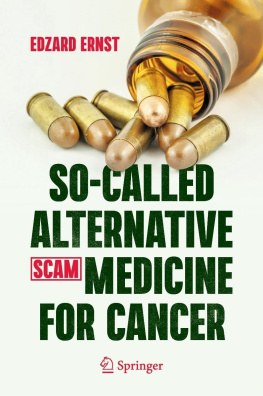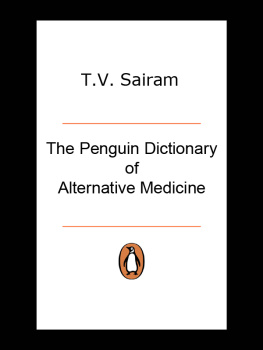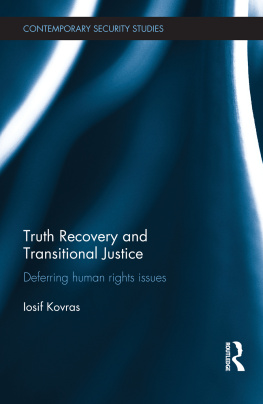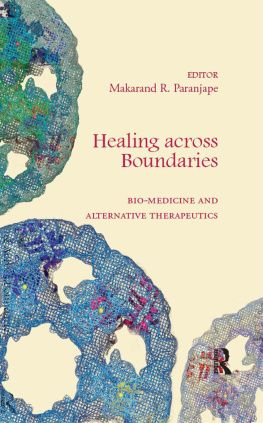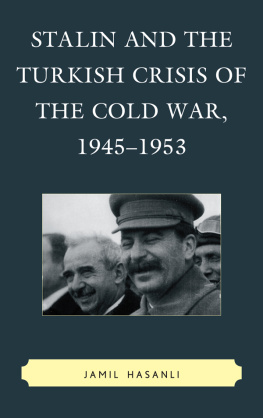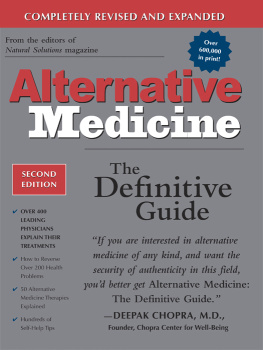Anamaria Iosif Ross - The Anthropology of Alternative Medicine
Here you can read online Anamaria Iosif Ross - The Anthropology of Alternative Medicine full text of the book (entire story) in english for free. Download pdf and epub, get meaning, cover and reviews about this ebook. year: 2012, publisher: Bloomsbury Academic, genre: Romance novel. Description of the work, (preface) as well as reviews are available. Best literature library LitArk.com created for fans of good reading and offers a wide selection of genres:
Romance novel
Science fiction
Adventure
Detective
Science
History
Home and family
Prose
Art
Politics
Computer
Non-fiction
Religion
Business
Children
Humor
Choose a favorite category and find really read worthwhile books. Enjoy immersion in the world of imagination, feel the emotions of the characters or learn something new for yourself, make an fascinating discovery.

- Book:The Anthropology of Alternative Medicine
- Author:
- Publisher:Bloomsbury Academic
- Genre:
- Year:2012
- Rating:3 / 5
- Favourites:Add to favourites
- Your mark:
- 60
- 1
- 2
- 3
- 4
- 5
The Anthropology of Alternative Medicine: summary, description and annotation
We offer to read an annotation, description, summary or preface (depends on what the author of the book "The Anthropology of Alternative Medicine" wrote himself). If you haven't found the necessary information about the book — write in the comments, we will try to find it.
The Anthropology of Alternative Medicine — read online for free the complete book (whole text) full work
Below is the text of the book, divided by pages. System saving the place of the last page read, allows you to conveniently read the book "The Anthropology of Alternative Medicine" online for free, without having to search again every time where you left off. Put a bookmark, and you can go to the page where you finished reading at any time.
Font size:
Interval:
Bookmark:
Anamaria Iosif Ross

To my mother Valentina and my sons Benjamin Luca and Maxwell Toma, for the motivation and encouragement to delight, explore, and persist in my dreams
This book would not have happened without the inspiration and support of many extraordinary people who have graciously provided me with their wisdom, assistance, and understanding over the years. My research interest in alternative medicine was encouraged at Tulane University by the distinguished scholars Victoria Bricker, Adeline Masquelier, and William Bale. It was brought to life by generous informants, friends, and colleagues through their willingness to include my interests and queries into their lives.
I especially wish to thank writer Vasile Andru, ELTA founder Ion Dumitrescu, Dr. Lucian Stratan, and the ELTA members who shared their insights and resources with me. The time spent with practitioners, supporters, and advocates of alternative medicine or medicin naturist in Romania has been provocative and nourishing in countless ways. My Romanian fieldwork was generously supported by a junior Fulbright grant, and the writing of the original dissertation by a Selley Fellowship at Tulane. In Romania, I was generously welcomed and greatly assisted by the energetic and insightful scholars at the Francisc I. Rainer Anthropological Research Institute in Bucharest: Ioan Oprescu, Cornelia Guja, Radu Rutu, and Cristiana Glavce, the Institutes tireless director.
The coming-into-the-world of this book must be credited to the elegant and perceptive Anna Wright, my Berg editor, who navigated my ups and downs during the past three years with the poise of a seasoned Tai Chi master. Her gentle but firm encouragement and feedback have been immeasurably helpful and reassuring in the journey from proposal to print. The idea for this book belongs to the spirited Hanna Shakespeare, my first editor at Berg, who first envisioned my writing such a book on the basis of our conversations about my Romanian fieldwork, and who guided me expertly through the proposal process. Mary Drucker and her husband David Drucker provided invaluable wisdom and editing suggestions in the final stages. Karina Ross generously lent her attentive eye to the proofs.
The writing of this book has been a logistical adventure, since shortly after starting the project my family expanded with the joyful arrival of our second child. My immense gratitude goes to my husband David Ross and my vivacious boys, Ben and Max, for their love, help, sacrifice, and tolerance as I have struggled to carve out the time needed for this project at a time when David was actively pursuing his own Ph.D. and scholarly work on creativity. I am deeply thankful to my generous family in Romania: Luminia Blnaru, Coca Andronescu, Ovidiu Gartig, Tamara Gartig, Stelu si Alecu Miu, as well as my dear friends and colleagues Cristina Pi Montgomery, Alicia DeVora, Lisa Orr, Jo Ellen Vespo, Melodee Moltman, Sherri Cash, Su-Lien Miller, Angel and Naybell Rivera, John and Margarita Foreman, Ajsa Korajac, Alice and Ctlin Butunoi, Kim and Orin Domenico, Stacey Giroux Wells, Jonathan Barns, Atasi Basu, Tejashree Sayanak, Simone Shaheen, Diane Nickerson de Feliz, and Danhong Zhang, who gave me strength during challenging times in my life and career. My father, Dr. George Yossif, has modeled life-long curiosity, passion, and courage in learning and thinking, which I hope will equally inspire my talented young brother Oliver Yossif on his journeys.
The hope and resilience that permeate this book are a tribute to my gentle and luminous mother Valentina Iosif, ne Valentina Blnaru, and to my grandmothers Stelua Blnaru and Eugenia Yossif, whose complete devotion to their families and inexhaustible passion for life remain my invisible anchors.
Alternative Medicine in the Twenty-First Century
Alternative medicine is ideally suited to anthropological examination, being commonly represented as the elusive and challenging other of modern capitalist biomedical systems. It is an eclectic array of healing resources, methods, and practitioners that exist mostly outside the dominant system of health care of a particular society at a particular point in time. Since the label alternative medicine means a multitude of things in different contexts, it is a unique challenge to define and explore its diverse approaches and social interconnections, particularly in a brief yet multifaceted manner that addresses a broad audience that includes health professionals, university students, and novice scholars of holistic healing. This book takes on the timely task of providing a concentrated anthropological synthesis at a time when diverse complementary and alternative therapies (known in biomedical circles under the acronym CAM) have been steadily gaining visibility and acceptance, becoming gradually integrated into the mainstream of health systems in many parts of the contemporary world, and playing a progressively significant role in the social relations of health care (Cant and Sharma 1999; Baer 2001; Keegan 2001; Ernst 2002; Whorton 2002; Lee-Treweek et al. 2005).
For millennia, diverse approaches to healing have coexisted and blended through time and space, often as a result of cultural contact. The extreme dominance of Western medicine during the twentieth century is an atypical historical event. The view that biomedicine (twentieth-century Western allopathic medicine based in biological science) should be the only legitimate healing practice was a vision of modern rationalism that has not become realized. While it has been growing in popularity in recent decades, alternative healing is not a newly fashionable trend but a well-established cultural strategy and a dynamic, heterogeneous feature of most contemporary medical landscapes: a way in which people seek to maximize their chances for well-being and adapt to rapidly changing or unfavorable circumstances, drawing on multiple sources and resources of knowledge and authority. At the same time, there are some powerful new trends at work, such as the increased consumption and commercialization of unconventional healing methods, a growing trend toward the professionalization of alternative and complementary practitioners, the integration of biomedicine with alternative medicine, and the growing impact of globalization and the Internet. The latter is involved in creating, reviving, or promoting alternative healing communities, lifestyles, methods, and products for healing that are interconnected with the increasing commoditization of foods, medicines, wellness, and spirituality.
The anthropological quest for interpretations of alien cultural experiences is itself a therapeutic quest for meaning, a search for identity that can be considered a form of healing in the broadest sense, wrote Loring Danforth (1989:300). The modern health-seekers path through the realm of healing alternatives resembles the anthropologists journey through distant landscapes and customs, a journey driven by the hope of achieving a new coherence, a more meaningful narrative of suffering and the human condition, and an enabling transformation of our vulnerable (and often marginal) identity in a much larger context. Like a modern fieldwork site, the world of alternative healing practices is highly dynamic and elusive, subject to multiple critiques and interpretations, at once inviting and forbidding to the incidental observer. It may not be pinned down or taxonomized in a classic ethnographic or sociological manner. The emergent contours of alternative medicine can only be fleetingly captured in the shifting mirrors of modern life experience, health politics, and globalization. There are discernible themes and patterns at work, but practices and participants are not fixed, and boundaries are easily blurred.
Font size:
Interval:
Bookmark:
Similar books «The Anthropology of Alternative Medicine»
Look at similar books to The Anthropology of Alternative Medicine. We have selected literature similar in name and meaning in the hope of providing readers with more options to find new, interesting, not yet read works.
Discussion, reviews of the book The Anthropology of Alternative Medicine and just readers' own opinions. Leave your comments, write what you think about the work, its meaning or the main characters. Specify what exactly you liked and what you didn't like, and why you think so.

